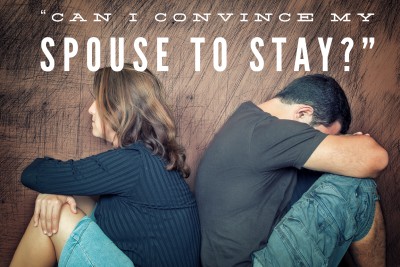Certainty Versus Variety In Marriage
https://savethemarriage.com/stmblog/wp-content/themes/corpus/images/empty/thumbnail.jpg 150 150 Lee H. Baucom, Ph.D. Lee H. Baucom, Ph.D. https://secure.gravatar.com/avatar/669b7e375d93f77521ddaba08adb8063?s=96&d=blank&r=pg “But I haven’t change!,” he told me. His wife said he had. He claimed he hadn’t.
“But I haven’t change!,” he told me. His wife said he had. He claimed he hadn’t.
“Too bad,” I said, “you need to change! If you haven’t, you are already in trouble.”
He wanted to be the same ol’ guy she married. But he wasn’t. And if he was, that would not be a good thing.
Tony Robbins reminds us (I introduced this in my Thriveology Podcast earlier) that we have that certainty as a core human need. My friend was proclaiming his “certainty,” his predictability, in his NOT changing.
But the matching drive is for variety — of needing something different and novel.
We have BOTH needs. As I noted in that other podcast, it’s not about living in the middle, with neither variety nor sameness. It is about balancing variety and certainty. Of having places that are predictable and places that are novel in your life.
Marriages can get into trouble when people don’t recognize the need for BOTH, and are threatened by the opposite of what they are wanting at that given point.
Two people are unlikely to always be in synch with need variety and needing certainty. If one is looking for some certainty (sameness, predictability) and the other is looking for some variety (excitement, fresh, new), they can find themselves in a struggle. They will misunderstand and frustrate each other.
Which is the point of this podcast episode. Tune in below.
Podcast: Play in new window | Download
Subscribe: RSS



